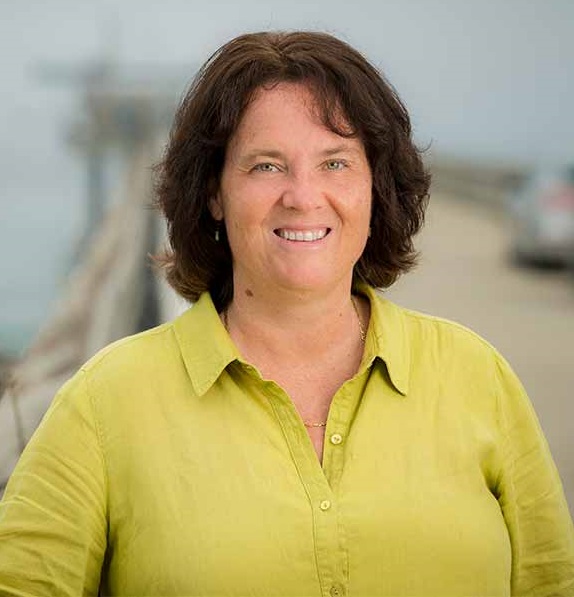
- kprather@ucsd.edu
- (858) 822-5312
-
Scripps Institution of Oceanography

Kimberly Prather is the Distinguished Chair in Atmospheric Chemistry at Scripps Institution of Oceanography and the Department of Chemistry and Biochemistry at UC San Diego.
Prather’s research focuses on understanding the impact of atmospheric aerosols and their impacts on clouds and climate. Early in her career, she developed a technique known as aerosol time-of-flight mass spectrometry that is widely used in atmospheric field studies around the globe to determine the origin and chemistry of aerosols. A focus of her research involves understanding how aerosols impact climate, with a major focus on their role in modifying clouds and precipitation processes.
At the NSF Center for Chemical Innovation's Center for Aerosol Impacts on Climate and the Environment (CAICE), Prather's research involves making measurements of atmospheric aerosol chemistry and developing and using new analytical methods for these measurements. Aerosols occur in the environment in a variety of forms: clouds of ice or water droplets, salt particles from ocean spray, and smoke from a variety of combustion sources. They play an enormous role in our daily lives from affecting visibility and global climate change to endangering our health. Due to applications in research, medicine, and industry, there is great scientific interest in aerosols, however relative to their gas phase counterparts, limited information exists regarding their complex chemistry.
Another major thrust of the research involves the development of new techniques for the analysis of organic species in aerosol particles. This is an extremely complex problem as there are hundreds of organic species in particles yet only 10-20 percent of the mass has been identified. We are approaching this problem by using tunable laser wavelengths and selective reagent ions in chemical ionization.
Another area of interest involves using an ATOFMS instrument as an on-line probe for monitoring heterogeneous gas-particle reactions in the laboratory. The ATOFMS is interfaced to a flow tube where heterogeneous reactions of tropospheric concern are simulated. Aerosols of known size and composition are created and reacted under controlled conditions. The fundamental question of which factors (i.e. size, composition, charge) influence heterogeneous gas-particle reactions are being addressed.
The center's controlled laboratory studies assist in sorting out data obtained from atmospheric studies, complicated by the numerous chemical processes occurring at any time. The information obtained will be used to generate new models for atmospheric processes which will be directly applicable in efforts to control ozone depletion, improve air quality, and develop an understanding of the impact of aerosols on global climate.
Prather has authored or co-authored 154 articles in high level scientific journals. She is the recipient of the American Chemical Society Analytical Chemistry Arthur F. Findeis Award, the Kenneth Whitby Award, the GAeF Smoluchowski Award, the National Science Foundation Special Creativity Award, the American Society for Mass Spectrometry Award, and the National Science Foundation Young Investigator Award, and the Distinguished Scientist Award from the San Diego section of the American Chemical Society. Prather is an elected fellow of the American Academy of Arts and Sciences, American Association for the Advancement of Science, and American Geophysical Union.